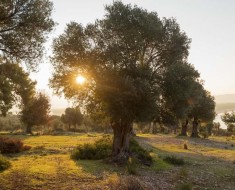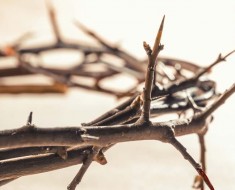Acts 2:1-11
Matthew 12:14-21
Being a Christian is like living with a permanently uncompleted jig saw.
Many of the bits you know about and have found the rightful place for them. There’s the tradition of your local church affecting you more than perhaps you might imagine. There’s the culture of your confessional Church and the place of religion in your national tradition. There is the bible of course and how you read it is critical, and then there are your own emotional needs and intellectual pilgrimage as well as the effect the people you have known and loved has had upon you. These are all part of the uncompleted picture. But there’s also the historical origin of the Church, which we celebrate today, and perhaps that’s the hardest bit to find and fit into the picture. How it all started. What actually happened.
Clearly a man had was dead, brutally killed. Yet there are rumours of him being alive in people’s memories and in their minds as well but independent of both, undeniably and forever alive. Anxious friends sharing these experiences meet in a closed room. And then this invasion of spirit like wind and fire, a presence that throws open the doors and opens the mouths of friends who soon find themselves in the streets of Jerusalem giving intelligible voice to their faith and experience in the languages of many people to hoards of astonished listeners. That’s the story we receive. How do we fit it into our jigsaw? So much of the Jesus story is rational, this bit exceeds rationality.
In some ways it is beyond analysis. It’s a story of a strange event told at least second hand some years afterwards; a paranormal event, a corporate mystical experience and one which has practical consequences.
There is a word for it –‘theophany’ meaning a physical manifestation of the presence of God. It’s a noisy affair and in the streets Jews from many parts of the world, meeting to celebrate the harvest feast of Pentecost, demand an explanation for all this fuss. The friends seem not so much to tell people about the experience but to tell them what it confirmed. Soon Peter is telling them about ‘Jesus of Nazareth, a man attested to you by God’.
It’s important to note that an inexplicable event then becomes intelligible – people hearing about it and about Jesus in their own language. The experience is ltransitory and less important than the consequences. But let’s think about the tongues of fire that leap over the heads of the friends. Fire that is elemental, unpredictable, transferable.
1. Elemental
Fire is part of the givenness of life. Volcanic fire beneath the thin crust of earth, sand and rock. Fire darting with sudden ferocity from the sky in a storm, Primitive humans harnessing and controlling fire for warmth, food, light and eventually for industry – minerals from the ground fired into iron, copper, lead and steel. The sun – a ball of fire and the provider of life. Fire is basic to our being. It is elemental.
So is God. The danger for religious people is to regard him as extra rather than elemental – the bit that makes our lives bearable rather than the giver of all things and chief participator in them. It was to the people that those confused, dear, faithful friends ran to as they left their spirit-filled room, not with a domestic but a global reach to their faith.
Christianity is not primarily about believing certain things ; is not a private experience for personal fulfilment; is not an unexpected bonus which like a dog with a bone makes us retreat to the kennel to protect and play with what we’ve got; not something added on, but something from the foundation of the world. There. Being and becoming.
There’s a wonderful phrase in one of Paul’s letters – 2 Corinthians 5:4,5 – where he talks about us being swallowed up by life, a life which is guaranteed by the spirit. God is our breath; part of our being. In hospital recently one of the several forms I had to fill in included a question about my religion. I put ‘Christian’ but I would have liked to have said something about an approach to life that sees God in all things (there wouldn’t have been room for that) – even Paul’s idea of being swallowed up by life. ‘Religion’ sounds like an added bit to life, not life itself.
It’s important today to argue for God. Thinking about him, let alone a response to him, is not in many people’s minds but we must open out a conversation about him, not so that we throw religion at people but together explore life.: living with the assumption that as we exist, so also does God. He is the elemental truth of our being.
2. Unpredictable.
It is very hard to control fire. I remember the Australian bush fires in the mid 1990’s, causing acres and acres of devastation to wild life and the destruction of homes and farms. When the burning seemed to be at an end it was then discovered that the fire had gone underground and was still a potential danger. So easily fire can take hold and with a sudden change of the wind wreck havoc, become unpredictable and very hard to control.
And so it is with God. With its frequent re-telling in polite church cultures, we have lost the terror in the Pentecostal story. We assume that these first friends of Jesus left their place of meeting to do something for God – but they may have left the room in the hope that they could get away from this invasion of pure spirit. Much of old testament prophecy is about the destructiveness of God – fire is a central image of him in action. You cannot control God.
…but we behave and organise our church worship as if we can. I’m amazed how in our prayers we interpret God to himself as if we know all about him and he might not know about himself., (too much prayer is the equivilent of flattery). We don’t know all about him. ‘Do not hold me’ says Jesus in one of the resurrection narratives, ‘because I am not yet with my father’. Holding on to God is what we want to do, holding on and holding him down. Incarcerating in word, stone, brick, liturgies, traditions, doctrines the ever living, ever restless, unpredictable God.
It’s no wonder that the idea of Holy Spirit is unfamiliar to us. Images of father and son connect with our humanity. The God of spirit and of fire is by definition indefinable. His freedom is absolute. Now he is here, then he is there. Where next will he be, the Scarlet Pimpernel of the Universe? All we can say is when he comes, we want to be there with him.
3. Transferable
Once fire became a friend rather than an adversary to primitive societies, it was necessary to make sure it was always available. And so a burning brand was kept alight – its flame passed on to another when it was nearly at its end. Flints and tinder became the means of instant fire, as the sun shone through quartz or glass to set fire to dry leaves. The fire was no longer just arbitrary but could be arranged. It was transferable. The light and warmth in one place could become the same in another.
And so it is with God. He is available to everyone everywhere. He may discriminate in favour of the poor – we have learned that from the way Jesus lived – but he is for everyone. That is a very difficult thing for religious people not only to believe it but to behave as if they believed it.
For six years I had this strange life of popping in and out of other people’s churches – meeting and worshipping with a congregation and then off to some other church to do the same. I hope I was always a friend but, to some extent inevitably, also a stranger. Sometimes it wasn’t easy to get into the church – doors didn’t lead to where I thought they ought to go. Too often it was hard to get into the culture of the church. It felt as if the God worshipped in such a church had become the church’s possession and the good news of Jesus Christ had become the private conversation of the faithful. God had become the fire cooling in the hearth.
Evangelism isn’t a public relations exercise of the sort practiced by politicians and commercial interests who want to sell us something and take us over, but an attitude which allows the fire of God – O.K. to warm us, but more to move us on and out and beyond to some new experience. It will happen differently, along the lines of our personalities, always naturally and when it happens it will be out of our hands. For God is himself and God must be free.
And so the story of the first (and unrepeatable?) Pentecost. The understanding and application of it is one of the bits of the Christian picture we may find difficult to fit into the jig saw puzzle of our Christian discipleship. For it is not precise but as volatile as wind and fire, the divine enigma that is out of our control but which in constantly surprising ways, energises us.





